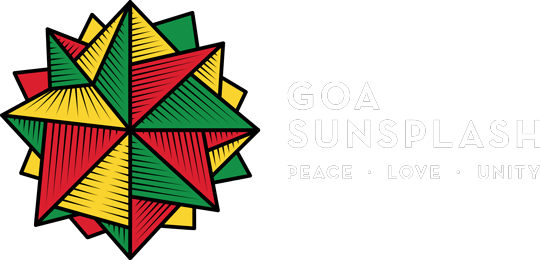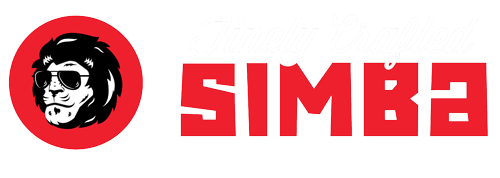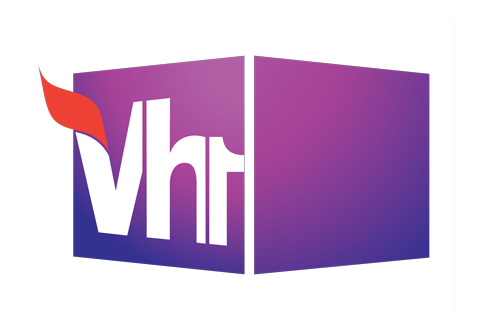Kavin, for Goa Sunsplash: Greetings, big up yuhself Rouz and everyone at Blessed Love Sound! How was your 2018 musically, and what can we look forward to in 2019?
Rouz of Blessed Love Sound: Greeting Kavin, thanks for the interview. 2018 was a exceptional year for us. I introduced Kigwa, our new MC to the team and we played some shows that proved we carry the same vibe and that Kigwa is suited to join Blessed Love. It was mad fun and I’m quite happy about the connection. Something to build on.
We didn’t play as many shows as we did the years before. Instead we rather took some time to reflect on ourselves, like where we want to go with what we are doing. We’ve taught ourselves to be courageous and keep our integrity at the same time, which sometimes meant turning down booking offers that didn’t meet our own visions. Of course we played at festivals like Reggae Jam, which is one of our favorites. Also you could see us performing on various political marches & rallies as for Black Lives Matter or Welcome United in solidarity with the global Refugee Movement. These are things we will always do: Playing music to create a positive impact on society. In my opinion that’s what Reggae music was and is still about.
Despite the DJing I started to put a bigger focus on production. I got myself some new gear for producing and remixing music, so you can expect to hear fresh output in 2019. Besides that I put a focus on certain records which were reissued on vinyl through
Buyreggae.com, our own distribution platform for rare and popular reggae vinyl. I compiled and designed the artwork of some classic reggae material, which will finally be pressed and distributed exclusively in our webshop.
In 2019 we plan to take things one step further. We wanna grow together. That means more shows! Also we’re planning to start producing our first own riddims and connect the links, which I have gathered through my travels in the name of reggae music. Of course we won’t neglect the good cause. That’s why you’ll always see us supporting progressive movements, on the streets or in the dancehall.
K: What’s going on in the German reggae/dancehall scene? A decade ago, I know that artists like Gentleman had made it big internationally, bands like Seeed were making waves, and clubs like Yaam were holding down the Berlin scene. How have things changed since then?
R: The German Reggae/Dancehall scene is still alive, but the hype as we have seen it in the early 2000’s has dissolved. You find more and more promoters having a hard time to maintain their regular parties, so they start introduce other musical styles to their parties.
DJs who jumped on the dancehall bandwagon for the hype, now drift off to other scenes. Positively speaking you could say it becomes more authentic, because guests really know what they are coming for. On the other side, of course, we want to attract outsiders to our scene, especially young people. A scene can only prosper when being open to different influences, while of course still maintaining its own character.
YAAM is still THE place in Berlin when it comes to Caribbean culture. It’s our home base and where we feel home the most. At YAAM we host big events with international lineup on a frequent base. YAAM’s War Ina East weekend hosted by Superlock for instance and of course carnival of cultures, which we’ve been part of for many years, are institutions which attract guests from all over the world. However, we suffered a tragic loss earlier this year when Ortwin aka Papa Yaam passed away. From a social point of view he was the connecting link and an important figure within the community.
K: I believe this is not your first time in India… tell us about your previous visit: the audiences, the music, the sights and sounds.
R: Yes, that’s right. I’ve been to India in 2011. My old friend Delhi Sultanate invited me to perform 2 shows with him in Delhi. I think I stayed 1-2 weeks with him. He showed me the city with all its sights and some special places as well. Then we had one show at
Out Of The Box and one at an after show party of a Ska Vengers' concert. By that time the reggae scene in India was still in its beginnings. That’s also when I got to know the Reggae Rajahs. Mo and I have been in touch even before. He used to buy records from my shop
Buyreggae.com and we were chatting for some time. So after, I played some shows with the Rajahs. We did Bangalore, Goa, Bass Station stage at Pune's NH7 festival of them that I remember. My off days I used to backpack, travel and discover the country side. I traveled to the south and visited Kerala & Hampi which was an amazing experience.
K: As you know, reggae/dancehall has gone international. How do we keep this momentum going and take it to even higher heights?
R: Yes indeed, it is international. Besides Australia (and Antarctica .. haha) I played shows on every continent. It’s an uplifting experience to feel the universal power of reggae music. Especially in non-white communities across the globe. To keep it going and growing I think we - lovers of reggae music - should change our mind sets from an individual to a more common experience. Connect! Everywhere! Let’s keep away from jealousy and enviousness and take it up to higher heights. Like Capleton said "Music is a mission, not a competition!" We should keep it as it was meant to be - REBEL MUSIC - MUSIC OF THE UNDERPRIVILEGED - and add it to our own specific context. WORD, SOUNDS AND POWER are the main ingredients. Of course Jamaica, as the birthplace of reggae music, remains our biggest inspiration, but to push reggae above its boundaries we shouldn’t simply stick to copying the Jamaican way. We should rather take it as an inspiration and interpret it considering our own circumstances and way of living. Reggae can relate - As long as we don’t water it down. So it’s important to maintain its originality, its rawness and uncompromising attitude.
K: Any special ideas/tracks that you are preparing for your Goa Sunsplash set? What can the Goa crowd expect to hear from you this time?
R: I don’t want to spoil too much. But let me tell you this. Since my set will be around prime time, it will be more danceable, but be sure to hear some foundation tunes as well. Can’t leave out the foundation at a Blessed Love dance.
K: Any other messages for the India massive?
R: To the India massive I can just say: If you love reggae music, then get involved. Help pushing the culture further, which has to bear up against commercial and chart music. Create collectives, host shows in your communities, study soundsystem culture and keep flourishing. I am amazed about the movement in India within the last decade and am sure there’s much more to come. Thanks for the interview. Blessed Love!











